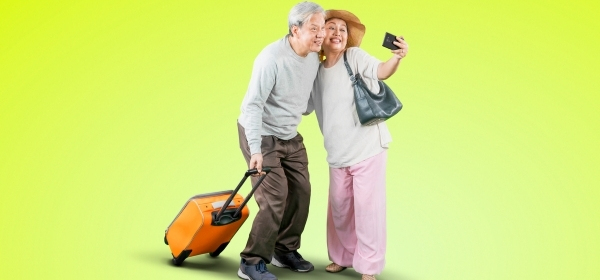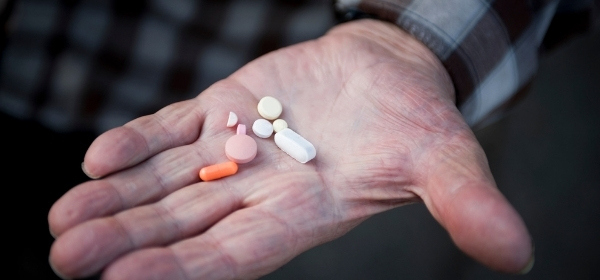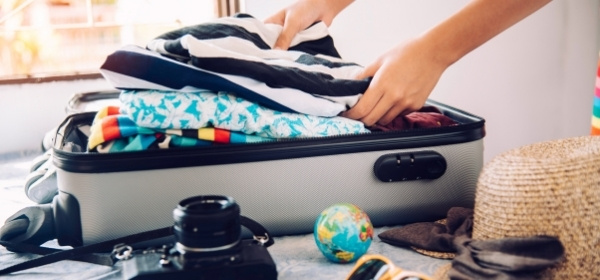Have Health, Will Travel (Part 1)
Careful planning is crucial for seniors to ensure they stay healthy and safe while travelling. Here are some tips to note before you embark on your next adventure in the first of a three-part article.

Want a happy and memorable trip? Feel more at ease with a bit of extra preparation.
We all want a happy, memorable trip. But, while holidays can leave seniors feeling invigorated and energised, the planning process can be a bit stressful. The good news: you can feel more at ease about your plans with a bit of extra preparation. GENERAL TIPS - Many travel agencies provide travel plans specifically for seniors. Get information from several agencies to find one that’s most suitable for you. - Research the health facilities in the location(s) you plan to travel to. - Get a travel insurance plan that covers pre-existing medical problems, if necessary. - Travel plans by travel agencies are more appropriate than preparing yourself. - Get essential information about the weather, lifestyle and language used in the places you plan to visit. - If you plan to travel early, be prepared to increase your physical intelligence by exercising. Have a medical examination before travelling. A stable chronic illness should not prevent you from enjoying your holiday. However, ensure that you consult your doctor for a medical exam. The type of examination required will depend on the pre-existing medical problem. After a heart attack, for example, your doctor would need to ensure that there are no unstable blood vessels or heart muscles before allowing you to travel. Some illnesses or medications may interact with your diet. For example, the symptoms of heart failure will be worse if there’s an increase in salt intake. Conversely, someone taking drugs to “dilute” the blood (such as warfarin) would need to stabilise dietary intake to interfere with vitamin K metabolism. If you have diabetes and are travelling to a place with a different time zone than your place of origin, a change in the timing of your diabetes medication may be required. Your sugar level measuring device can help you to adjust the timing of your medicine safely. In addition, knowledge of your drugs is necessary (some medications are sensitive to the time food is taken). Taking new medication immediately before you travel is not recommended because the new drug may be unsuitable for your system. Vaccination is essential if you travel to a destination that has a high risk for certain infectious diseases. For example, get the meningococcal vaccine if you plan to perform the Hajj. In addition, seek advice from other medical practitioners you’re accustomed to seeing before you travel.

Bring enough of your medications for your travel as they may not be readily available in other countries.
COMMON MEDICATIONS FOR SENIORS Medicines legal under Malaysian law are not necessarily allowed in other countries. Seek the advice of the Malaysian mission in the country you plan to travel to before you arrive there.
It’s advisable to bring enough medicine for the duration of your travel. The medication you’re taking may not be easy to find in other countries. Seek advice from doctors and pharmacists.
Get a signed and stamped letter from your doctor stating the medications taken are to treat your illness. If necessary, seek the help of your doctor to list the over-the-counter medications you’re currently using.
Medicines purchased in other countries may differ from the medicine you’re using in terms of the brand and preparation process. In addition, some drugs act differently from one brand to another, even if the active chemicals of the drug are the same. An example is thyroid hormone replacement drugs.
If you need needles and syringes for treatment (such as insulin for diabetes), make sure you bring enough supplies for the entire duration of the trip.
For some specific medical problems, a bracelet or chain that contains the medical information needed for an emergency is essential, perhaps in the local language of your destination.

Pack only the things you need and avoid buying too many items that increase luggage weight.
YOUR LUGGAGE Bring only the things you need. Avoid buying too many items that will increase the weight of your luggage. Take all your essentials with you while on the plane or bus. However, avoid packing your necessities in your check-in baggage. In addition, it’s important to keep medications for pain, gastritis and dizziness in your hand luggage and avoid storing the medicines in the storage compartments. While travelling, you’re likely to forget to take your medications because of the change in your routine. So instead, use a medicine box with the medicines you need according to the time and day.
Source: MyHEALTH Portal, Health Ministry Malaysia.
